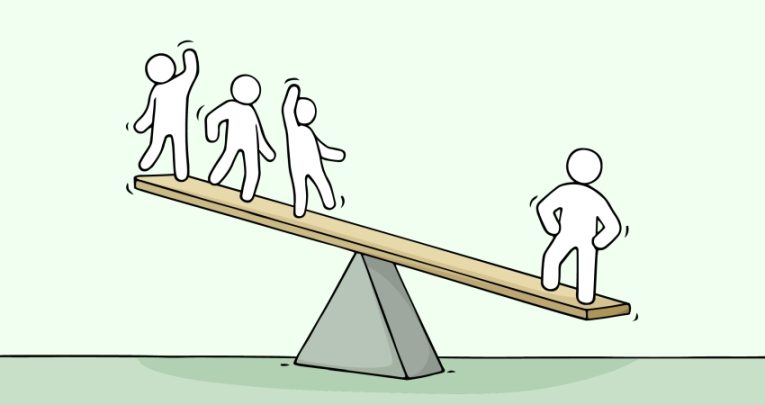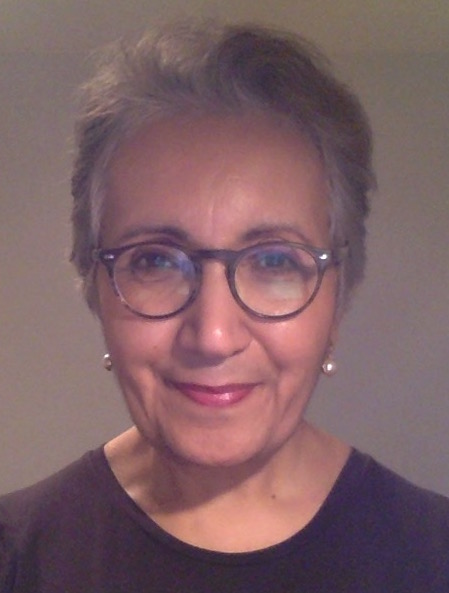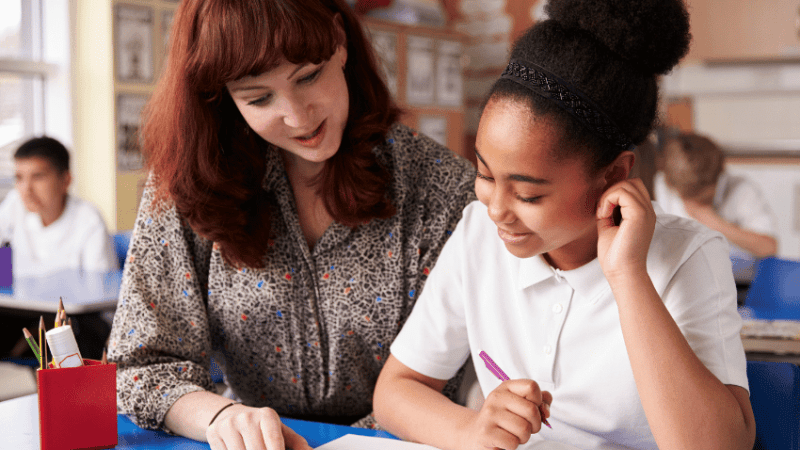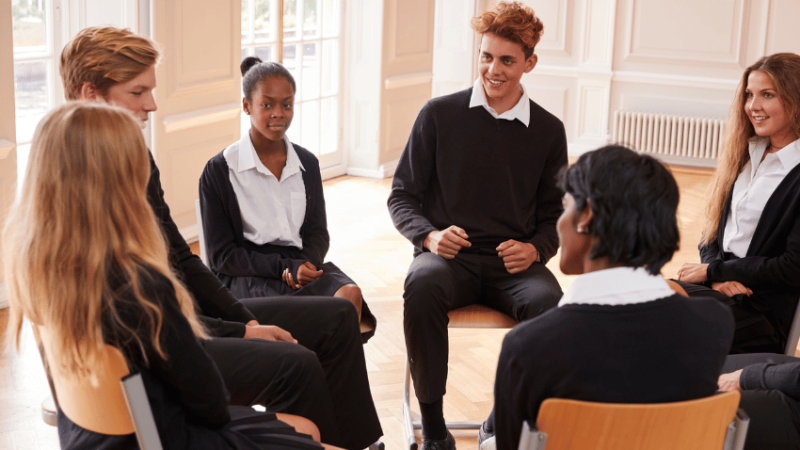Social justice – At what point does ‘educating’ become ‘advocating’?

Dr Alka Sehgal Cuthbert makes the case for why schools shouldn’t put their thumbs on the scales of social justice…

- by Dr Alka Sehgal Cuthbert
- Teacher, independent academic, writer and director of Don’t Divide Us Visit website

What principles should a teacher draw upon when deciding how best to proceed in his or her main task of educating? Should teachers put their thumb on the scales of social justice in favour of minority rights?
There are some educators who would openly advocate for the key tenets of critical race theory (CRT) – which sees British society as systematically racist, and maintains that to be truly anti-racist, you must accept this assertion.
I would venture, however, that most teachers would rather avoid having to come down on one side or the other of a culture war in their classroom.
New orthodoxies
Yet as two recently published reports show, this may not be possible. While the explicit teaching of CRT, and/or wider critical social justice tenets is presently limited to schools in certain areas, there’s evidence that certain key beliefs are fast becoming accepted as orthodoxies.
The ‘Who’s in Charge?’ report produced by the campaign group Don’t Divide Us (of which I’m director) examines the anti-racist school policies adopted by a national sample of LAs, according to their diversity and inclusion policies, pledges and websites.
The report classes said policies as ‘biased, ‘at risk’ or ‘unbiased’ based on the presence or otherwise of language referring to key CRT tenets, and explicit statements supportive of wanting to change society or cultural attitudes.
The report found that 56% of respondents were either biased or at risk – that their anti-racist or equality, inclusion and diversity statements endorse the beliefs, explicitly or implicitly, that Britain is ‘systematically racist’, and that the ethnic majority are inevitably bearers of ‘white privilege’ or ‘unconscious bias’.
Public institutions
The second report, ‘The Political Culture of Young People’ produced by Policy Exchange, surveyed the attitudes of 18- to 20-year-olds, and found that 59% of respondents had been taught one or more CRT-related terms. Within that group, 68% had either not been presented with any counterarguments, or been told that any alternatives, such as colour-blind approaches, were ‘not respectable’.
Schools might not be the biggest influencer on young people’s social and political attitudes – at least when compared to social media or peer groups – but they are public institutions, with an important role to play in the maintenance (or indeed disruption) of wider public norms.
In recent years there has been a growth in third-party, quasi-educational organisations offering CRT-based, anti-racist advisory services to schools, often with little to no quality scrutiny of the content they produce.
There, is however, readily available anecdotal evidence to suggest that adopting such policies uncritically can shape the framing of otherwise educationally sound curriculum content, leading to changes in practice. As schools come to embrace their new role as deliverers of (critical) social justice, their educational role will become secondary – with corrosive intellectual and ethical consequences.
Contested issues
When teachers come down on the side of social justice activism, the distinction between educational goals and the political interests of the teachers in question becomes blurred, breaching the duty of schools to teach impartially.
Consider, for example, a presentation slide sent to me by a parent. It related to a homework task their child had been set, about the attacks on statues of figures associated with slavery (other topic options were available), soon after the toppling of Edward Colston’s statue in Bristol by protestors in 2020.
The parent had asked their child whether the class discussion had considered alternative views, and was told it hadn’t. The only consideration of ‘alternatives’ in the task was limited to ‘Who do you think should replace these statues? Who should we celebrate instead?’ The notion that many people might legitimately disagree with the protestors’ reasoning went wholly unacknowledged.
Of course, it’s entirely possible for teachers to discuss contested social issues with older classes – but these discussions must be framed educationally. By, for example, comparing the removal of statues in different times and places. If the topic is one less focused on history, then it ought to include the fair presentation of a range of public views.
Pub argument
Failing to adhere to the educational principles of disciplinary knowledge and impartiality when introducing controversial topics can backfire horribly.
Take the recent fracas at Wood Green Academy, when the Muslim gay campaigner, Khakan Qureshi, was invited to speak to a class in a school with many Muslim pupils. That’s not to say that Mr Qureshi shouldn’t have been invited, but the lesson – parts of which were filmed and shared on social media – consisted of little more than a heated exchange of opinions. A school version of a pub argument.
The teacher, who can be seen struggling to maintain control of the class, could have framed the discussion differently – educationally, with some deeper thinking and foresight. How and why do religions adhere to, or drop certain doctrines? She could have introduced Mr Qureshi in the context of a RE-based discussion on whether there can be an ‘English Islam’. Based on what can be gleaned from the recording, it doesn’t look like any such preparatory work was done.
Was Mr Qureshi invited to promote a muddled brew of British values codified in government and Ofsted documents? Or did the teacher believe that prior indications of homophobia in the class called for attitudinal change?
This prompts the question of what exactly university education departments propose as legitimate aims for education, and for schools. What are teachers being told about the reach – and limit – of their authority in relation to parents?
Heated arguments between religious conservatives and sexual minorities aren’t inevitable, especially in schools. But in the context of a multi-ethnic, predominantly secular society, a key precondition is that state school staff perform the role of public servants, not activists.
Relative neutrality
Teachers need to create an arena of relative neutrality, in terms of party politics, religion, and society’s normative values.
It would help if the government and the profession can agree that schools be made exempt from certain social and political pressures. Schools have the unique task of nurturing the intellectual and ethical development of children, along universal principles with which the majority of the public (explicitly or tacitly) agree.
This means that any teachers wanting to change the political or ethical norms of society can do so in their own time, but not through the classroom. It means upholding the educational value of teaching impartially – a goal supported by 69% of parents in a recent YouGov poll.
Only then will we have a chance of preventing classrooms from becoming sites of ever greater division and chaos, and teachers losing the trust of parents.
Alka Sehgal Cuthbert (@ASCphiled) is a teacher, independent academic and writer, and co-editor of What Should Schools Teach? – Disciplines, subjects and the pursuit of truth, 2nd Ed. (£25, UCL Press)










